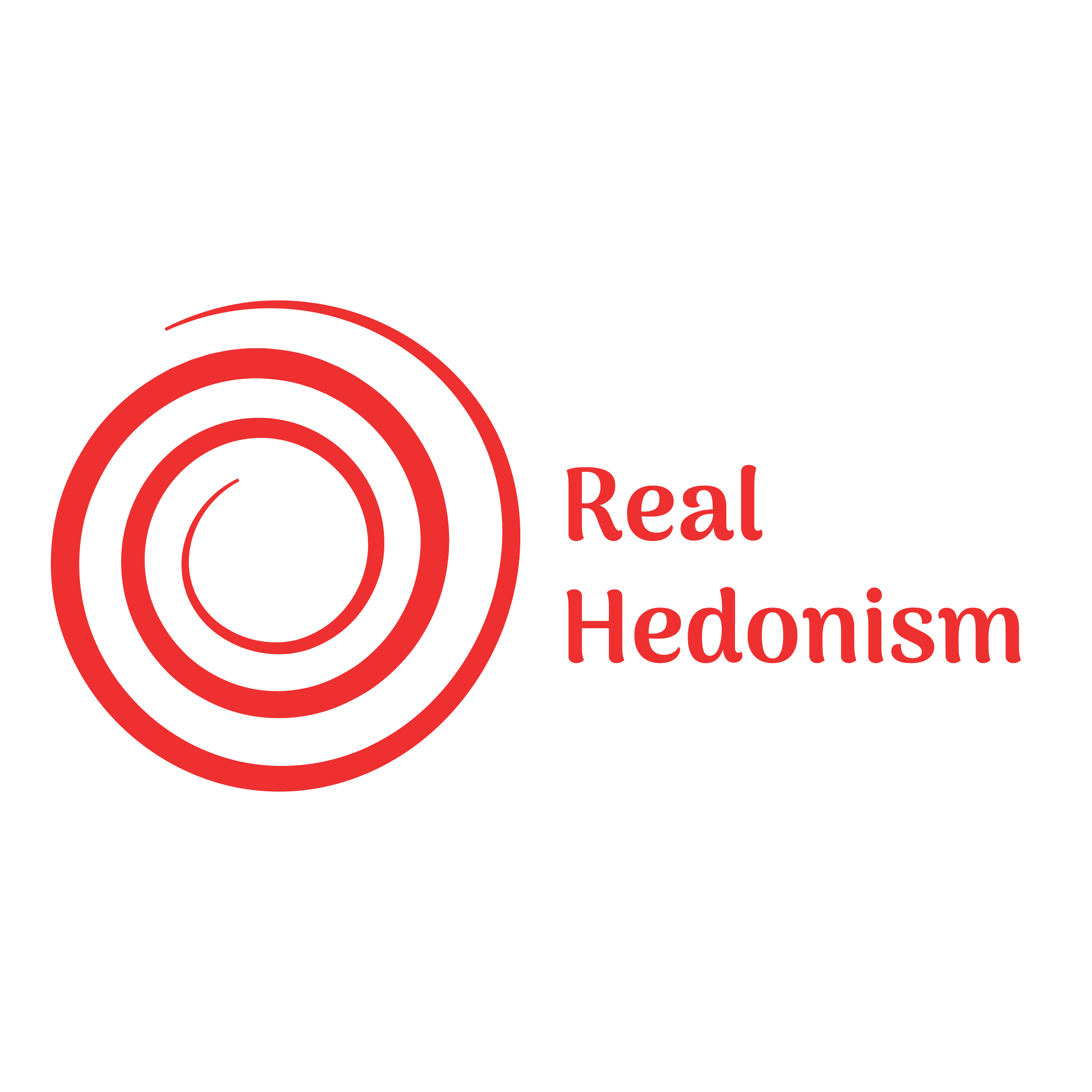Debauchery vs Hedonism
*TW: We talk briefly about chronic illness, addiction and disease in this article.*
The Image of Hedonism
If you google hedonism you are likely to end up on a sketchy porn site or looking at reviews for a nude resort in Jamaica. Consequently, many people hear that we’re Hedonists and smirk like we just told them some dirty little secret. Images of sex, drugs, and festivals fill their heads. They like having a good time, and yet, inevitably they make a comment along the lines of “yeah, but everything in moderation. I don’t want to overdo it.”
In common American culture, Hedonism is seen as fun, but intrinsically unhealthy. Stories such as the Wolf of Wall Street and Fear and Loathing in Las Vegas seek to show how reckless, self-gratification is a dark path which leads only to harmful places.
It is strange to us that Hedonism tends to have this ‘go too hard’ reputation. In some ways we’re reclaiming the word and giving it a far more positive connotation, but even google’s definition does not paint Hedonism in a bad light. Notably, there is another word whose definition actually encapsulates the negative qualities people often associate with Hedonism.
Hedonism
The pursuit of pleasure; sensual self-indulgence.
Debauchery
Excessive indulgence in sensual pleasures.
Debauchery and Hedonism are often seen as the same thing in our society (at least in the US) because our culture is built on abrahamic and particularly puritanical traditions. At best, these traditions suggest that the fulfillment of our desires should only be done in the very specific ways laid out in the bible or by a pastor, so as to stay safe from sin. At worst, these traditions enforce the belief that the literal devil is trying to trick us at every corner and the only way to beat him is to abstain from all sin-like activities and shun those who don’t.
While we do not believe in sin, and certainly do not think abstinence is the way to deal with all potential vices, we recognize that moderation is everything and debauchery is not the same as Hedonism.
We often think about the difference between ‘devotion to pleasure’ (hedonism) and ‘the blind chase for pleasure’ (debauchery). Many conceptualize pleasure as something quantifiable that they want to get more of. By referring to ‘devotion to pleasure’, we put the importance not simply on acquiring the things that give us pleasure, but on the benefit of cultivating pleasure in all of our relationships.
Understanding Debauchery
The blind chase for pleasure is easy to recognize once you are aware of it. It’s found in empty and fleeting experiences which you can never get enough of to feel satisfied. For some people it looks like casual sex rather than an intimate relationship. For others it is hours of looking for excitement in video games rather than than in physical exercise. For all of us it is different: what can be a deep pleasure for one person can be a mere distraction for another. Some people find deep and fulfilling pleasure from smoking weed and daydreaming, while other people’s use of marijuana is only ever a distraction from working towards a more enjoyable life.
Whenever someone is blindly chasing pleasure, it is likely that they are choosing a cheap, easy and distracting experience over one that is both more difficult and fulfilling.
Sometimes through a ‘work hard, play hard’ mentality, we see people spending their weeks nose to the grindstone and their weekends partying. In the more extreme version of this, people spend their entire lives working for some return of pleasure in the future, whether it be in retirement or in heaven.
We see this pattern all the time on college campuses and in young adult life in general. Students will spend an entire quarter overworked and undernourished, and finish it off by being drunk and high for the entirety of spring break. It isn’t that working hard or partying hard are necessarily bad things, but that the two are often used to justify not taking care of yourself. Skimping on nutritious food, exercise and quality friendships is okay now because there will plenty of those things at the festival this Friday or when watching the game this Sunday. Going back to the grind on Monday is a lot easier with all those good memories from the weekend.
Here is where debauchery and Hedonism are quite different. Debauchery is often followed by a hangover and abstinence. It is quite possible to be a hardcore debauchee for a couple days and return to a ‘normal’ lifestyle for the rest of the month. Hedonism, on the other hand, is not something that you can just turn on or off like a light switch. Being a Hedonist requires devotion to pleasure every day.
The Body is Our Temple
Beyond the fact that blindly chasing pleasure leaves a person dissatisfied, empty pleasures tend to be unhealthy and, in the long term, lead to disease. The first disease that often forms, one which many people wrongly associate with Hedonism, is addiction.
For a Hedonist, addiction is a very scary thing. Our entire philosophy is grounded in the wisdom of the hedo (our sense for pain and pleasure), and addiction has a way of messing with that sense. When you are addicted to something, it can become very difficult to gauge which things in life you really enjoy. An alcoholic, for instance, might feel as though everything sucks unless they’ve had a drink or two. Not only is this fundamentally unsustainable, because you can only drink so much before you die, it makes the addict unaware of the full range of enjoyable things.
Ultimately, most addictions to empty pleasures lead to some form of chronic illness. Whether it is type two diabetes for the sugar addict, lung cancer for the smoker, or social isolation for the workaholic, pursuing empty pleasure can lead to some dangerous places.
Whether or not addiction is the route there, disease is a huge problem for Hedonists- perhaps far more so than for people in religions that shun the material world. A person whose religious beliefs are centered around making it to some utopic afterlife has much less reason to worry about a disease of the body or mind, for those will supposedly be cured upon entry to the afterlife. A Hedonist, being focused on pleasures here on earth, many of which being quite sensual, relies on their body for all forms of ‘worship’.
For all those who have not watched a loved one suffer at the hands of some chronic disease, it can be hard to imagine just how bad things can get. Some illnesses are so bad that they leave people in a constant state of suffering; from this place, Hedonism can be very difficult. It is not impossible to be happy in spite of chronic pain, and pain can even catalyze some people to live more Hedonistically. Of course, not getting a disease in the first place (whenever possible) is certainly preferable.
Thankfully, many diseases are quite preventable. Therefore, rather than being attracted to a ‘light the candle at both ends’ sort of lifestyle, Real Hedonists recognize that good health is their greatest asset. Though certain drugs may be fun and certain foods may taste great, if they are detrimental to our overall health, they are detrimental to our devotion to pleasure. It may be a cliche, but for a person who worships pleasure, the body truly is a temple.

